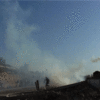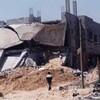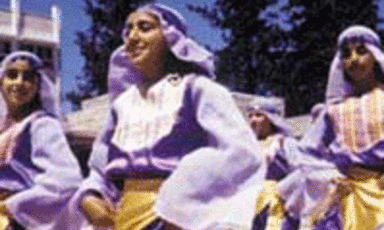“in failing to focus on the Israeli occupation of the West Bank, Gaza Strip and East Jerusalem, about to enter its thirty-seventh year, and on Israeli settlements, which underpin that occupation, the road map misses an opportunity to end this conflict. Instead, it concentrates on Palestinian violence and how to combat it—as if it came out of nowhere, and as if, were it to be halted, the situation of occupation and settlement would be normal. This is a reflection of the preponderant US role in the drafting of this document. It is also a sign of why it will probably fail, for official Washington is obsessively fixated on Palestinian violence as the root cause of all the problems between Palestinians and Israelis.” Noted Palestinian-American academic Rashid I. Khalidi takes a jaundiced accounting of the Road Map in the pages of The Nation Read more about Road Map or Road Kill?





